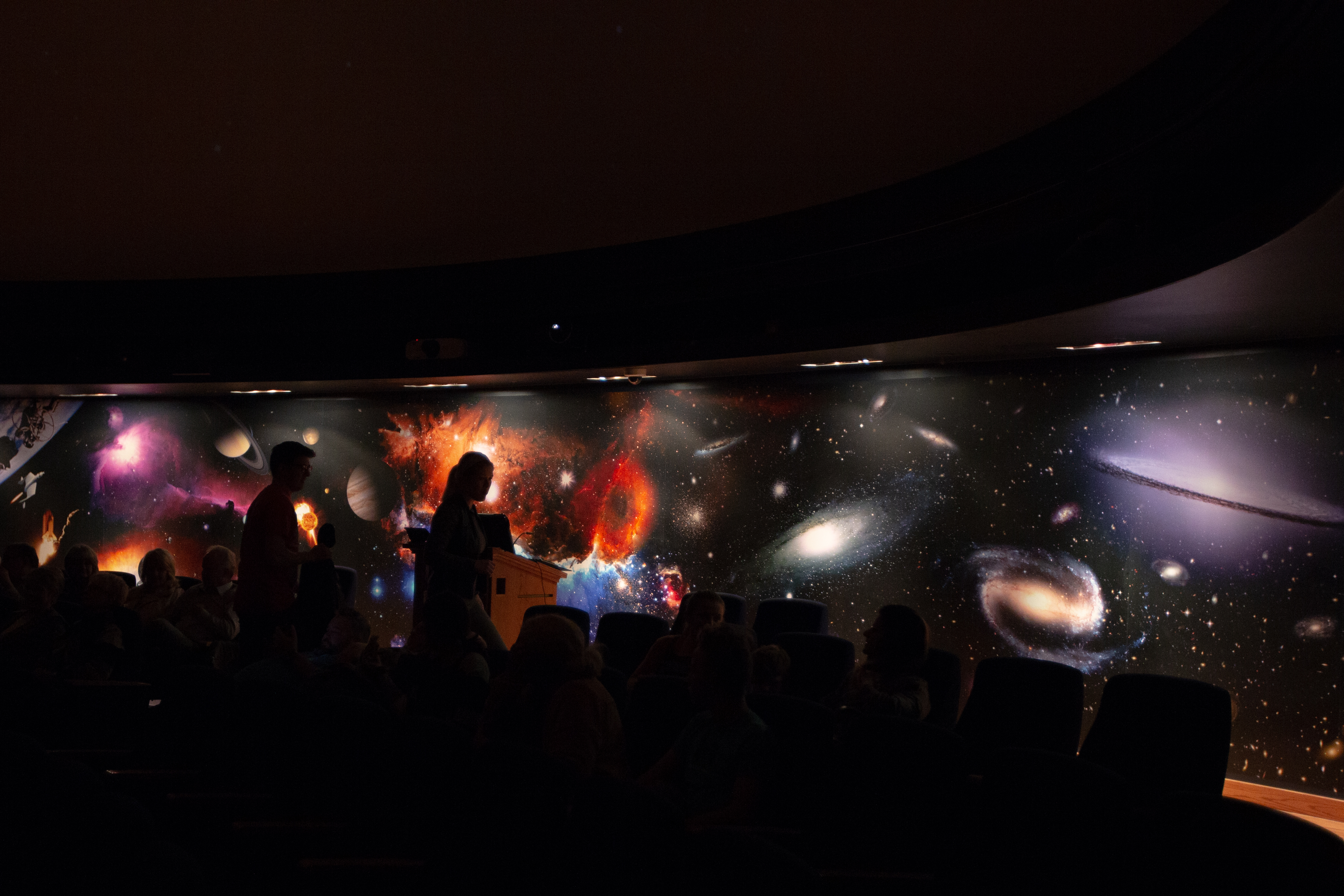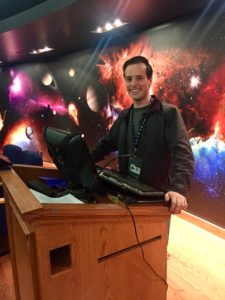
Jake Jensen has loved astronomy since he was little.
“Astronomy has been a part of the human experience forever. It’s easy to see why. Nighttime comes, you look up,” he said.
Jensen, a hopeful future astronomy professor, said the Royden G. Derrick Planetarium is one way BYU gets the community involved with the night sky.
The planetarium plays on the simple curiosity men have had since the beginning of time, asking ‘What’s up there?’ According to Jensen, astronomy is the oldest science society has.
Astronomy gives Planetarium Outreach Coordinator Jason Trump a chance to look at the sky and see the stars. He said coming to the planetarium and looking at the earth’s orbit gives a sense of awe about how big space truly is.
Trump helps run an outreach program at BYU that provides field trips and planetarium shows to help connect to the community. The audience of the shows includes “school groups, scout groups, youth groups, etc.,” according to the planetarium website. Friday evening shows are presented by the BYU Astronomical Society.
He said the planetarium is not about profit but rather allows people to feel as though they are a part of something bigger. As a presenter, Trump said he believes it is his job to help enable that feeling.

“In my shows, my philosophy is to always try and let people leave better than they came in,” Trump said. “I want people to come in, and I want to use the medium of astronomy and have them leave as a better person.”
The planetarium puts on several professionally-made, themed shows to educate the public as a part of the outreach program.
Jensen said the shows provide basic knowledge on the latest things happening in astronomy. He said the planetarium is another good-quality learning tool and form of entertainment.
Rochelle Biancardi and her husband, Jackson Steele, are both physics and astronomy majors who work as teaching assistants within the program.
Biancardi said she loves learning mind-boggling facts about the universe and said seeing beautiful images and displays in the planetarium can help excite students.
Trump said it is hard to learn astronomy out of a textbook and the planetarium is essential to helping students learn things for themselves.
“The primary purpose of the planetarium is to be able to educate students at the university and also the community,” Trump said. “They have to be able to come in and see the stars. There is no other way to visually learn astronomy.”
Steele said astronomy is a science people learn by seeing and doing, meaning, if a student cannot conceptualize it, they will have a harder time learning.
“Physics — as a science — puts meaning behind math, but with astronomy, you can actually visualize it,” Steele said. “I don’t have to describe what’s happening just with equations. It actually means something instead of just numbers.”
Jensen said in order to have the authorization to run the planetarium, a student must take PHSCS 313R, special topics in physics, where they learn the basics of how to do so. Other classes are offered to train students to use the telescopes and to further help community outreach.
Opening up the telescopes to the public allows them to see unique things such as Saturn’s rings, according to Biancardi. While showing the planetarium’s uniqueness to others, she can sit back and think, “Space is awesome.”
Jensen said the planetarium aids and benefits students, but is not essential to the major. However, it is important for the learning and enjoyment of the public and to general education.
He said the planetarium is also a good visual reminder that helps keep an eternal perspective when things seem stressful.
“Every single time (astronomy) is brought up in the scriptures seems to be for the purpose of raising your vision, increasing your perspective and showing you how big the Plan (of Salvation) really is,” Jensen said.
More information about the planetarium shows can be found on the planetarium calendar.




